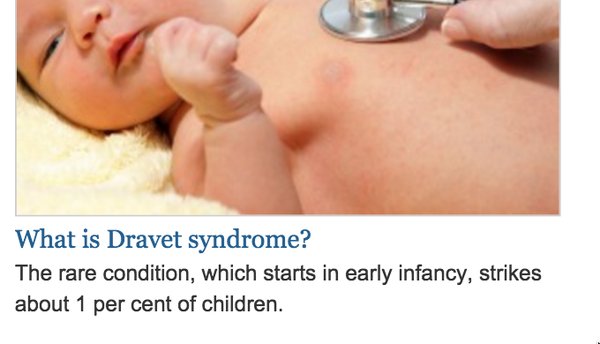Parental worry clickbait
From the ‘Parenting’ section of the Stuff Life & Style page:
That’s both wrong and implausible. If Dravet syndrome, a serious epileptic condition, was about as common as, say, autism spectrum disorder, you’d have heard of it already.
The actual rate is about 1 in 20,000, two hundred times lower than the teaser says. If you click through to the story and read it carefully you’ll see that Dravet Syndrome is responsible for about 1% of childhood epilepsy.
So, how did the numbers get so badly messed up? Well, one contributing factor is probably that the story was taken from The Conversation, and whoever did the editing job didn’t read it carefully enough. As seems to often happen with pieces taken from The Conversation, there’s no attribution either to the original publisher or the authors, and all but two of the nine links in the original have been scrubbed.
The Conversation encourages republication of the pieces they publish, but the Creative Commons license they use requires that republishers attribute the piece and indicate if changes have been made. I don’t know if the NZ news sites have negotiated an alternative deal, but I can’t see why lack of attribution would be desirable — I thought the by-line was as sacred to journalists as to academics.
Thomas Lumley (@tslumley) is Professor of Biostatistics at the University of Auckland. His research interests include semiparametric models, survey sampling, statistical computing, foundations of statistics, and whatever methodological problems his medical collaborators come up with. He also blogs at Biased and Inefficient See all posts by Thomas Lumley »

I am dismayed to hear that there is a problem with the veracity and factuality of stories in The Conversation. The whole idea of The Conversation approach was to support evidential and factual stories independent of media hype. You should tell the editorial team of your concerns and issues because I cannot believe that they would be happy that so many of their stories might have a questionable basis.
8 years ago
The stories at The Conversation are fine. It’s the editing when they get copied that isn’t.
8 years ago